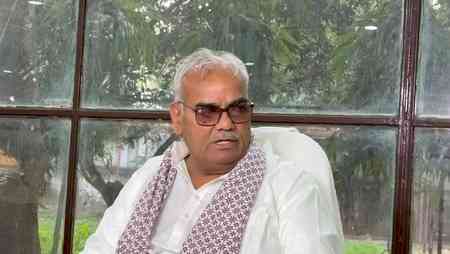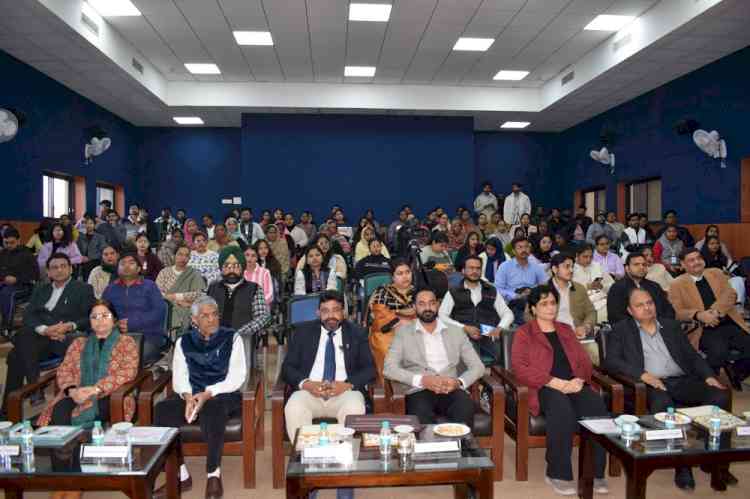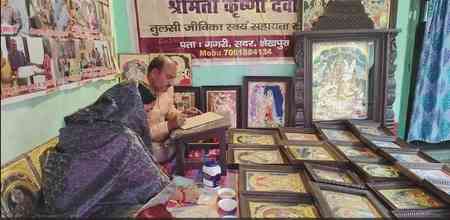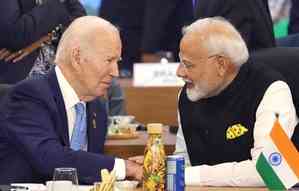KMV students explore cutting-edge Plant Tissue Culture techniques at Guru Nanak Dev University
Kanya Maha Vidyalaya (Autonomous) P.G. Department of Botany organised an educational visit, for the students of M.Sc. Botany to the Plant Tissue Culture Research Lab, Department of Botanical and Environmental Sciences and the Department of Bio-Technology, Guru Nanak Dev University (GNDU), Amritsar.
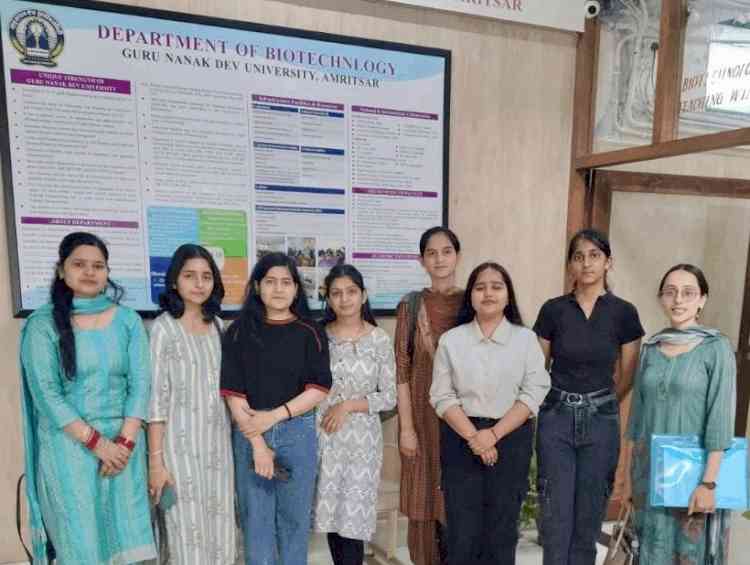
Jalandhar, May 4, 2025: Kanya Maha Vidyalaya (Autonomous) P.G. Department of Botany organised an educational visit, for the students of M.Sc. Botany to the Plant Tissue Culture Research Lab, Department of Botanical and Environmental Sciences and the Department of Bio-Technology, Guru Nanak Dev University (GNDU), Amritsar.
The purpose of this visit was to provide students with an opportunity to observe and understand the cutting-edge research and practical applications of plant tissue culture techniques, which play a significant role in modern biotechnology and environmental conservation. The visit aimed to enhance students’ theoretical knowledge with hands-on learning and exposure to the advanced techniques used in plant biotechnology, including the propagation and genetic manipulation of plants. The students were welcomed by Dr. Rajinder Kaur, Head, Department of Botanical and Environmental Sciences. The visit was structured as a guided tour of the research lab.
Navpreet Kaur and Manjinder Kaur, Ph.D. scholars, Department of Bio-Technology, provided a comprehensive introduction to plant tissue culture. They explained the basic principles behind tissue culture, including the use of sterile techniques, media preparation, and the initiation of culture from different plant tissues. The students learned about the process of cell differentiation, callus formation, and how it leads to the growth of new plants. They also highlighted the importance of plant tissue culture in agriculture and horticulture, particularly in the mass production of disease-free plants and genetically improved crops. Techniques like somatic embryogenesis, micropropagation, and cloning were discussed in-depth, showcasing their potential to improve crop yields and resistance to diseases. The lab has successfully employed tissue culture techniques to propagate Withania somnifera, Musa, Malus, etc. and conserve species of Rhodiola that are at risk of extinction, preserving genetic diversity and contributing to environmental sustainability.
Principal Prof. Dr. Atima Sharma Dwivedi averred that the visit broadened the understanding of the students about the potential of biotechnology in agriculture, horticulture, and environmental conservation. Madam Principal lauded the efforts of Department of Botany for successfully organising the visit.


 Rajat Kumar
Rajat Kumar 
